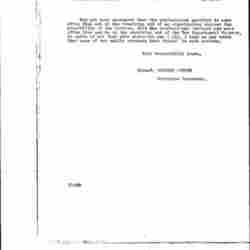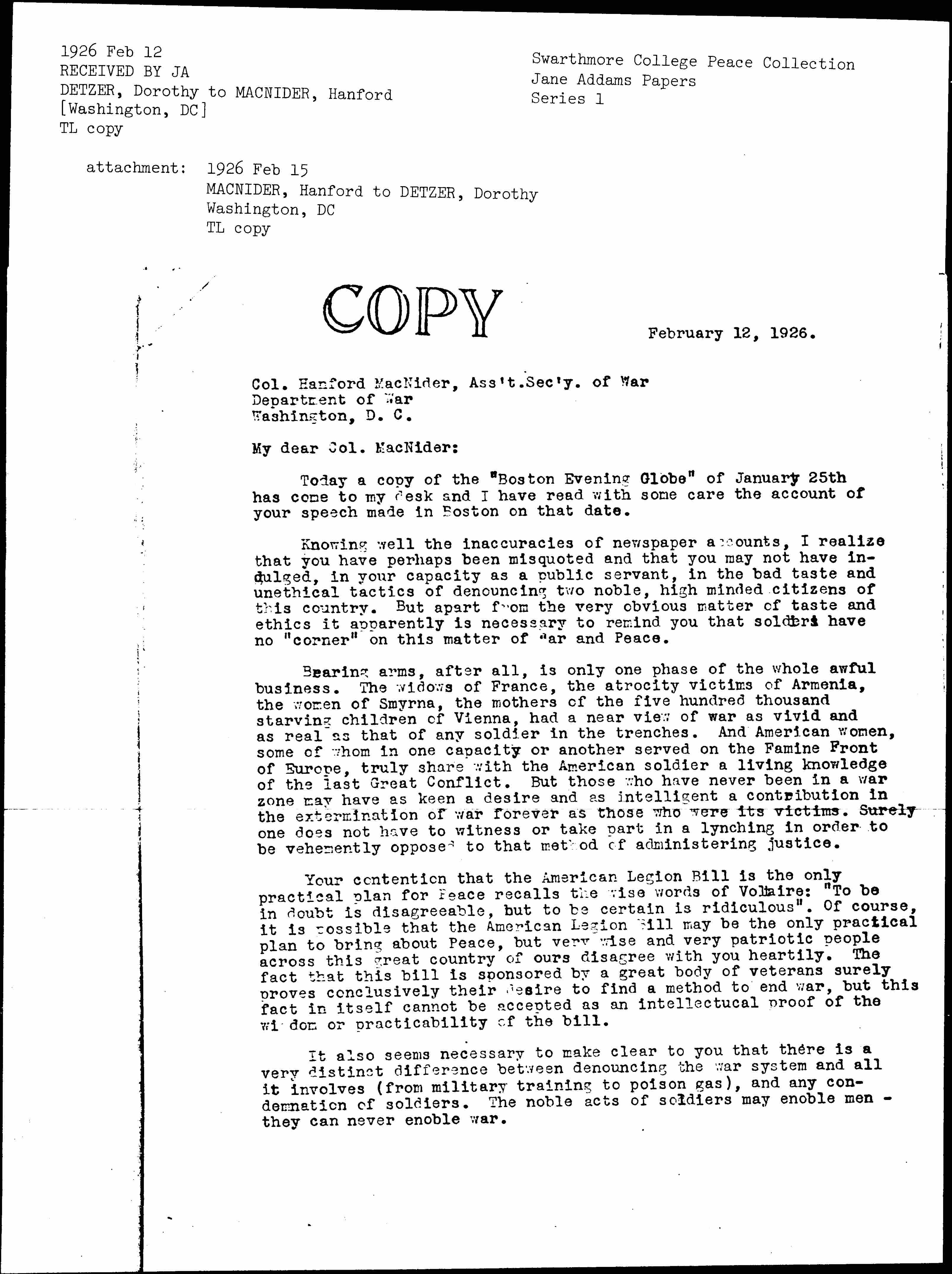COPY
February 12, 1926.
My dear Col. MacNider:
Today a copy of the "Boston Evening Globe" of January 25th has come to my desk and I have read with some care the account of your speech made in Boston on that date.
Knowing well the inaccuracies of newspaper accounts, I realize that you have perhaps been misquoted and that you may not have indulged, in your capacity as a public servant, in the bad taste and unethical tactics of denouncing two noble, high minded citizens of this country. But apart from the very obvious matter of taste and ethics it apparently is necessary to remind you that soldiers have no "corner" on this matter of War and Peace.
Bearing arms, after all, is only one phase of the whole awful business. The widows of France, the atrocity victims of Armenia, the women of Smyrna, the mothers of the five hundred thousand starving children of Vienna, had a near view of war as vivid and as real as that of any soldier in the trenches. And American women, some of whom in one capacity or another served on the Famine Front of Europe, truly share with the American soldier a living knowledge of the last Great Conflict. But those who have never been in a war zone may have as keen a desire and as intelligent a contribution in the extermination of war forever as those who were its victims. Surely one does not have to witness or take part in a lynching in order to be vehemently opposed to that method of administering justice.
Your contention that the American Legion Bill is the only practical plan for Peace recalls the wise words of Voltaire: "To be in doubt is disagreeable, but to be certain is ridiculous." Of course, it is possible that the American Legion Bill may be the only practical plan to bring about Peace, but very wise and very patriotic people across this great country of ours disagree with you heartily. The fact that this bill is sponsored by a great body of veterans surely proves conclusively their desire to find a method to end war, but this fact in itself cannot be accepted as an [intellectual] proof of the wisdom or practicability of the bill.
It also seems necessary to make clear to you that there is a very distinct difference between denouncing the war system and all it involves (from military training to poison gas), and any condemnation of soldiers. The noble acts of soldiers may [ennoble] men -- they can never [ennoble] war. [page 2]
May not your statement that the professional pacifist is more often than not at the receiving end of an organization suggest the possibility of the reverse, that the professional warriors may more often than not be at the receiving end of the War Department? However, in spite of all that your statement may imply, I hope we may trust that none of our public servants have stooped to such motives.
Very respectfully yours,














Comments